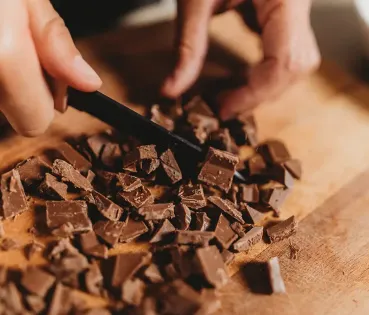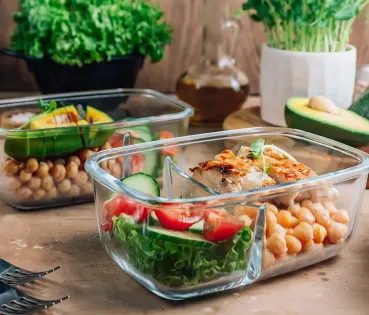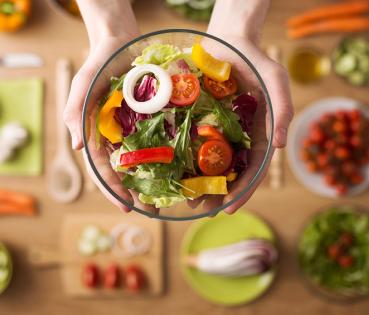
7 foods that aid digestion and 7 that hinder it
The quality of our digestion is largely a result of the food we eat and the way it has been prepared. What foods make this process easier or more difficult?
The digestive system begins in the mouth and ends in the rectum, passing through the oesophagus, stomach, small intestine and large intestine. This system hosts an array of microorganisms, such as bacteria and yeasts, especially in the intestine. This is what we refer to as the gut microbiota. Some of these microorganisms are involved in the digestion of dietary fibres and facilitate the absorption of certain micronutrients (vitamins, minerals, etc.).
Digestion is the process of breaking down ingested food into tiny particles. These are absorbed through the intestine, reach the bloodstream and are transported to different organs in the body. This process allows us to absorb nutrients and other substances as sources of energy and to enable the body's main functions. Furthermore, the quality of our digestion is largely a result of the food we eat and the way it has been prepared.
7 foods that facilitate digestion
We should consider an easy-to-digest diet if we suffer from digestive discomfort, in the presence of some gastrointestinal conditions , after certain surgical procedures, etc. Such a diet would include the following foods:
To facilitate digestion, it is important to resort to simple cooking techniques such as baking, steaming, grilling, etc. On the other hand, it is advisable to avoid methods that involve large amounts of fat or eating raw food.
7 types of foods that make digestion difficult
Some of the most challenging types of food, from the point of view of digestion, are:
As for raw foods rich in fibre, they aren’t necessarily unhealthy and can be very useful for enhancing the intestinal microbiota. However, they are more difficult to digest and, in the event of an episode of gastroenteritis or any other situation that requires special care, it is advisable to avoid eating such foods for the first few days, in order to facilitate digestion. There are other dietary habits that can improve digestion. For example:
- Avoid eating food served at extreme temperatures.
- Chewing food well is key to facilitating digestion, as digestion begins in the mouth.
- Finish main meals with an unsweetened herbal tea. For example, fennel tea, ginger tea, rooibos, camomile tea, etc.
- Choose simple dishes, with few ingredients.
- Keep an eye on serving sizes. It is preferable to enjoy a number of meals throughout the day and avoid large portions.
To conclude, including easily digestible foods in our diet and opting for low-fat cooking methods can help alleviate certain digestive issues. There are also other factors, such as stress, that can play an important role in our digestion.




